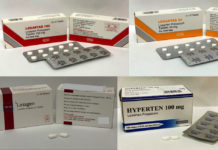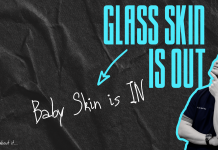Bad news for wine (and other alcohol) lovers out there – latest research on the effects of alcohol has shown that there is NO health reason to consume alcohol: the health benefits of consuming alcohol are offset (and outweighed by) by its harmful effects. Still in denial? Here are the facts:
The Study: Alcohol’s Effects on Heart Health, Cancer and Injuries
Researchers from Canada conducted a mega study involving 114,970 healthy adults aged 35-70 years old, from 12 countries (over 5 continents), to examine how alcohol affected cardiovascular disease, cancer risk, injuries, and overall effects on death.
Participants were divided into high, middle and low income groups based on their country, and self-reported how much they drank:
Abstinence (no drinking at all)
Low consumption (1-7 drinks a week)
Moderate consumption (7 – 14 drinks [women] or 7 – 21 drinks [men] a week)
High consumption (>14 [women] > 21 drinks [men] a week)
Heavy episodic drinking (5 or more drinks at one sitting, at least once a month)
The research followed participants over 12 years, to reveal some very sobering results:
1. 72% of drinkers were low consumption drinkers. Although drinking lowered the risk of hearth attack by 24%, it caused a 51% increase in the risk for alcohol-related cancers (mouth, esophagus, stomach, colorectal, liver, breast, ovary, and head and neck). There was no reduction in the risk for death or stroke among current drinkers.
2. The risk for cancer was 38% higher in wine drinkers, 69% higher in spirit drinkers, and 20% higher in beer drinkers compared to people who did not drink.
3. Heavy drinkers had a 31% increased risk for death, and heavy episodic drinkers had up to 54% increased risk for death, largely due to an increased risk for injury (71%)
Alcohol HAS ALWAYS been Linked To Cancer
We have known for a long time that alcohol increases the risk of cancers. It was classified as a cancer causing agent since 1988, and the 2014 World Cancer Report reported that alcohol accounts for 3.5% of cancers (about 1 in 30 cancer deaths) globally. Ethanol and its metabolite, acetaldehyde, are highly toxic: they are oxidants which give rise to inflammation in the body, leading to DNA damage, and eventually can cause the mutations which give rise to cancer. Alcohol also causes cirrhosis (hardening) of the liver – a precursor to liver cancer.
Heavy drinking has always been linked with cancer, but less was known about moderate and light drinking. The recent study puts the lid onto the coffin, by confirming what we have always feared – even low consumption is associated with an increased cancer risk. This is especially true in breast cancer, where a dose-response relationship exists: Each additional 10 g of ethanol ingested per day raises the risk of breast cancer by 2%-12%!

Protective Effects on the Heart
Cancer risk aside, it has also been widely agreed that light to moderate consumption of alcohol has protective effects on the heart. This was confirmed in the above study – wine drinkers had a decreased heart attacked risk of 24% compared to non-drinkers. Other studies have shown that alcohol also has protective effects against other heart conditions, such as heart failure and clogging of arteries. Bear in mind, however, that this only refers to light and moderate consumption. Heavy drinking has exactly the opposite effect on the heart: It can lead to an increased risk of high blood pressure, heartbeat irregularities, heart muscle malfunctioning, stroke, and of course, death.
What This Means For Wine Lovers
It is not the end of the world for people like us who love to unwind with a glass of wine after a long day. As is with everything in medicine, moderation is the key. To get the most (pleasure and health benefits!) out of your drink, consider these recommendations:
1. Consume low amounts of alcohol to reap the maximal heart benefits, and suffer the minimal cancer risks (which increases with increased consumption). Stick to no more than 7 drinks a week. Heaving drinking is associated with significantly increased cancer risk.
2. NEVER binge. Avoid getting drunk. Binge drinking (more than 5 drinks at one go) floods your body with toxic ethanol and acetaldehyde. Inflammation occurs, damaging your body much more than if you spread your drinks out. Alcohol also impairs mental and motor functioning, increasing the risk of injuries and death from accidents.
3. NEVER smoke and drink. Studies show that the combined cancer causing effects of alcohol AND smoking are worse than either working alone, notably on head and neck cancers.
4. Consider drinking Red Wine, which has other anti-oxidants, such as resveratrol which has adds on to the positive heart effects of alcohol. Resveratrol is thought to reduce inflammation and expand blood vessels to give a cardio-protective effect.
5. Be very mindful of Hard Liquors, fortified wines, sake. By virtue of their higher alcohol content, it is extremely easy to go overboard with them. At this point it is useful to remind ourselves of what one standard drink is -1 can of beer, 1 glass of wine, 1 of hard liquor, and a small glass (80ml) of sake/fortified wines.

References:
Medscape: Alcohol Ups Mortality and Cancer Risk; No Net Benefit (http://wb.md/1MXO6yF)
Medscape: Alcohol and Cancer: Drink at Your Own Risk (http://wb.md/1YJZpQm)
Lancet: Alcohol consumption and cardiovascular disease, cancer, injury, admission to hospital, and mortality: a prospective cohort study, Dr Andrew Smyth, PhD et al (http://bit.ly/1MXOhtT)

















